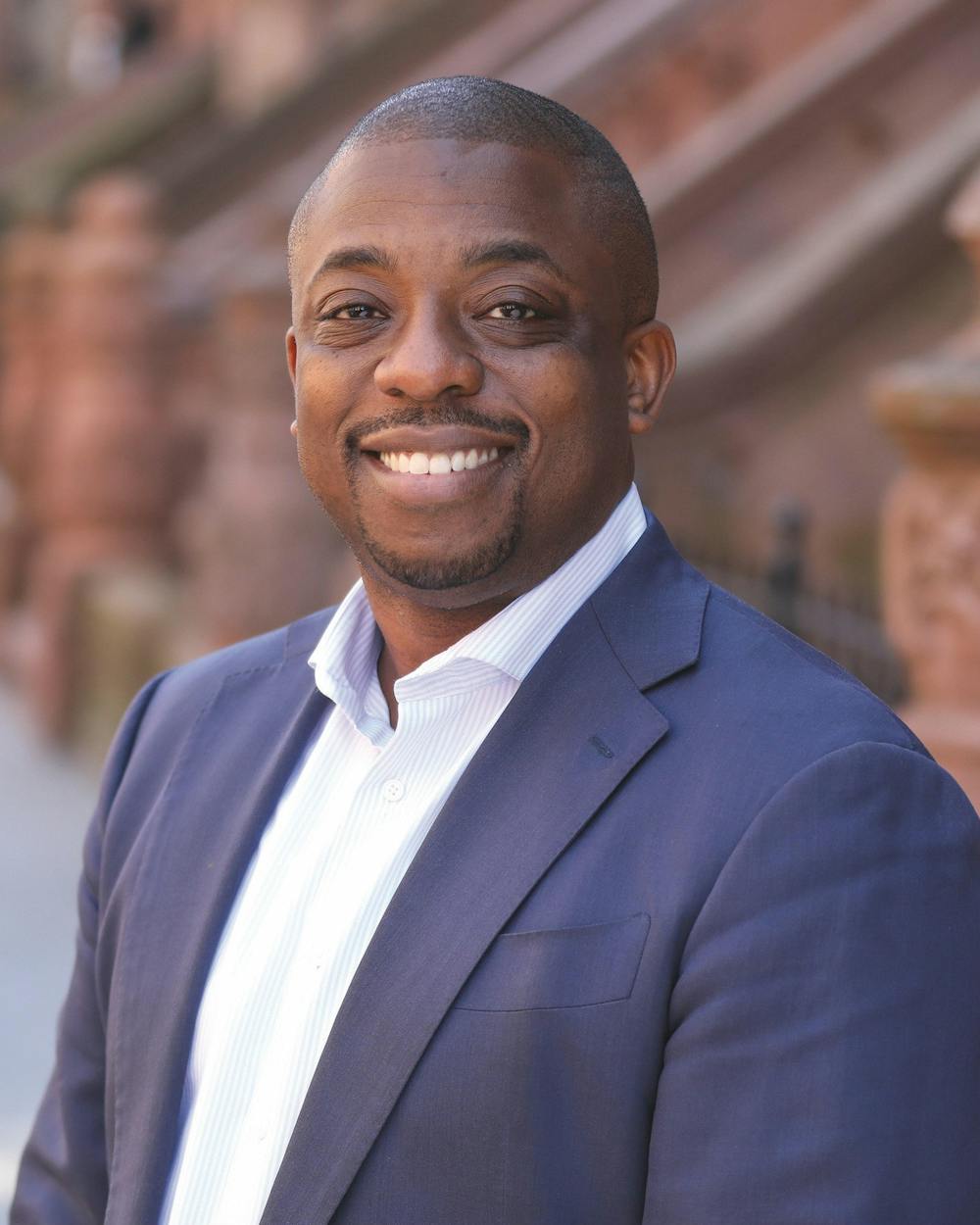New York Lt. Gov. Brian Benjamin ’98 considers his time at Brown, where he earned a degree in public policy, formative for his political career. The University taught him “how to experience, communicate with and understand people who bring different perspectives to the table,” Benjamin told The Herald in an interview. From College Hill to the campaign trail for Barack Obama in 2008, to his new appointment in New York Gov. Kathy Hochul’s cabinet, Benjamin has carried with him a passion for equity-minded politics.
He was sworn in Sep. 9, soon after Gov. Hochul replaced former Gov. Andrew Cuomo following his resignation in light of a state attorney investigation finding that he sexually assaulted multiple women. Benjamin was previously a state senator in New York’s District 30, a position he had held since 2017.
Benjamin is the son of a Caribbean mother from Guyana who arrived in the United States with “two suitcases and a dream and knowledge.” His mother worked at a labor union in New York City and exposed him to politics early on, having him attend rallies and watch Democratic Conventions and weekly “meet the press” events.
On campus, he formed his first memories through the Third World Transition Program, a pre-orientation program for students that focuses on issues uniquely facing communities of color. There, he met openly LGBTQ+ students of color — an experience he had never had at home.
Benjamin’s early exposure to politics and people from different backgrounds has since proved helpful during his time in government. His time at Brown gave him the tools to feel comfortable in whatever room he finds himself in.
“I don’t feel like I’m the ‘other,’” he said. “I feel like I’m a part.”
Often finding himself “the only Black person in the room,” Benjamin works to ensure communities of color are “included and are a part of the American dream.”
While at Brown, Benjamin found that academic freedom spurred his intellectual growth. “The open curriculum really is a powerful tool because it forces you to think and make decisions … that will allow you to be a wiser human being who hopefully will be part of leading a better society.”
Aside from competing on the track team, where he was a triple jumper, Benjamin also continued to informally play chess at Brown, having placed fifth in a New York state chess championship in high school. Later, Benjamin lived in Harambee House as a sophomore, was involved with the Brown’s chapter of the National Association for the Advancement of Colored People and went on to become senior class president.
His senior year roommate, Mike Young ’98, said Benjamin was a “very thoughtful” class president, focused on being “very inclusive to different groups of students on campus.”
Benjamin continued his involvement in University governance as a member of the Board of Trustees from 2015 to 2021. Before his tenure as a trustee, he served on the board of the Brown Club of Rhode Island and held leadership roles with the Brown Annual Fund and the Boldly Brown campaign.
“I’ve never never met anyone who can engage and connect with a wide range of people” the way Benjamin can, Young said.
Chris Dodson ’99 MD’03, Benjamin’s roommate after graduation, added that even when he and Benjamin disagreed politically, Benjamin would “always listen (and take his) opinion into account.”
Others felt inspired by Benjamin’s words. Doug Ulman ’99, a friend of Benjamin’s at Brown, remembers leaving conversations with Benjamin “feeling excited” that he was “around people that (were) so optimistic and that see possibility.”
After graduating, Benjamin attended Harvard Business School with Derek Aframe ’96, who remembers Benjamin as having “earnestness, sincerity, (a) comfortable demeanor, educational kinship … and a consistency of character.”
When Dodson was “burnt out” in his senior year of medical school, he remembers Benjamin taking him out to dinner. “(Benjamin is) a phenomenal friend … always picks up the phone … at the drop of a hat.” 20 plus years later, Dodson remembers that the dinner was “exactly what (he) needed.”
After business school, Benjamin worked at Morgan Stanley to pay off his “significant” student loans. “I’m very much a risk taker, I follow my passions and my dreams,” he said. “I wanted to have some life insurance (and) Morgan Stanley reflected that.”
Benjamin fundraised for Barack Obama’s 2008 presidential campaign, before starting the grassroots organization Harlem4Obama. Obama’s run was very emotional and the formal beginning of his own political activity in Harlem, Benjamin said.
Realizing his passion, he quit his job at Morgan Stanley to dedicate himself to community organizing. At the same time, he joined a friend in launching Genesis Companies — a real-estate development firm focused on creating affordable housing — and joined Community Board 10 in Central Harlem.
When he first joined the board, he focused primarily on economic development and affordable housing. But he realized over the subsequent six years that the criminal justice system would require greater focus.
“It’s hard to focus on economic development, small businesses and growing economies when you have this over-incarceration issue that’s happening,” Benjamin added.
Benjamin’s close friends from Brown virtually watched his swearing in ceremony together, Ulman said. “I don’t know that anyone who knew him then would be surprised that he would end up here now.”
"I have no doubt he's going to be an amazing lieutenant governor,” Dodson said. “As a friend, but also as an American.”





